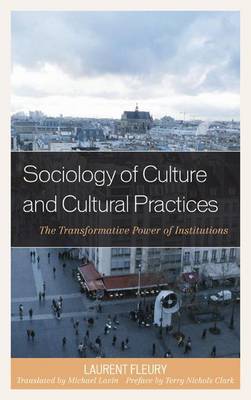New Directions in Culture and Governance
1 total work
Sociology of Culture and of Cultural Practices traces the development of the sociology of culture from its origins (Weber and Simmel) and examines the major trends that have emerged in this branch of sociology. It raises issues of cultural hierarchy, of distinction, and of legitimate culture and mass culture, and focuses on new areas of research, including the role of institutions, the reception of works of art, aesthetic experience, and emancipation through art and presents a synthesis of research and debate from France and the United States.
In attempting to understand the work carried out by cultural institutions, Laurent Fleury highlights the power they are capable of exercising: cultural institutions define the spaces in which collective identities, cultural experiences, social practices and ways of relating to art are expressed and crystallized. The power of cultural institutions is often ignored, and the fact that they inform activities, govern practices and encourage individuals to develop a degree of familiarity with culture is unfamiliar to many.
In attempting to understand the work carried out by cultural institutions, Laurent Fleury highlights the power they are capable of exercising: cultural institutions define the spaces in which collective identities, cultural experiences, social practices and ways of relating to art are expressed and crystallized. The power of cultural institutions is often ignored, and the fact that they inform activities, govern practices and encourage individuals to develop a degree of familiarity with culture is unfamiliar to many.
